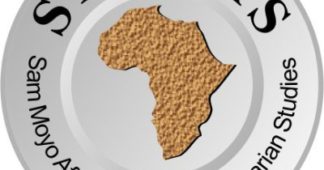By William Mallinson
I am neither a populist nor a conspiracy theorist, considering both to be enemies of the dispassionate study of history through documents. Herewith a true and documented story of political interference through unjustified mud-slinging.
In March 2015, the University of Nicosia invited me to Cyprus to speak at a conference on EOKA (National Organisation of Cypriot Fighters). I gave my lecture, dealing with the period when EOKA had been most active in the Fifties, and was then asked a to produce a paper for later publication in a book on the conference proceedings. I agreed, and submitted my paper, entitled ‘Cyprus, 1955 – 1959: The US, Britain and the USSR: Then is Now.’
I then forgot about it, until Emilios Solomou, Director of the UNESCO chair at the university, sent me the following six years later, on 27 April 2021:
Dear Professor Mallinson greetings from Cyprus. I trust that all is well with you in these difficult times we are all experiencing.
Admittedly I am writing after a long time since the conference on EOKA held at the University of Nicosia. After some initial difficulties we are finally going ahead with the publication of the papers and we thank you for your submission.
Attached please find some comments and suggestions regarding your article. We trust that you are still interested as we would really like to include your article in the projected volume.
We are at your disposal for any further details or clarifications you might require.
Regards,
EAS
I sent in my revised paper on 1 May, which Emilio acknowledged, and I promptly forgot about it again, until I received a bizarre email almost two years later, on 1 March this year:
Dear William,
It has been a long time since you have heard from us about progress on the EOKA volume. On the bright side we were offered a contract with Bloomsberry and the book manuscript will be delivered for printing before the summer. So much for the good news.
Now to the bad news. Bloomsberry send the proposal for the book and sample chapters to two external reviewers, one of which insisted that your contribution as a “populist conspiracy theorist” would be harmful for the publication and should be removed. Bloomsberry agreed and in order to save the long overdue book project and secure a publisher we complied. We are very sorry for this and hope that you can publish the piece in a different journal and book.
Warm regards
Hubert, Odysseas and Emilios
I responded as follows:
Dear Hubert, Odysea and Emilio,
Odd: Bloomsbury publish three of my books.
You should have approached Routledge.
I have myself written some pretty negative reviews of various books on Cyprus, but never lowered myself to personal and meaningless insults.
This seems to me a clear case of academic jealousy and/or political interference. Historians are feared, especially by party-political designer IR academics, sometimes financed and/or promoted by the Foreign Office et al.
I dislike conspiracy theory, and am definitely not a populist. I rely essentially on the hard scrutiny of documents, then drawing my conclusions.
Also, I couldn’t give the flick of a dying lizard’s eyelid if you/Bloomsbury are unable to publish my article, which I was kind enough to write and amend, following your request to write it, and my then amending it to reflect your comments and suggestions.
I have in any case had several articles and books published by decent publishers and journals, which include the same views as the article which you asked me to write; so I am unlikely to bother offering this one to anyone else.
For your information, I have it on good authority that Cyprus, even academic Cyprus, is becoming increasingly enslaved. Much is going on behind the scenes, which do not bode well for Cyprus. Back to the Annan Plan, it seems. But you are doubtless aware of this, so I shall not elaborate.
The decision not to publish my article seems to be more political than academic.
Καλό μήνα!
Bill Mallinson
A professor friend of mine to whom I had copied then emailed them as follows:
I don’t think Mallinson is a populist (I wonder if the reviewers know what this term means) or a conspiracy theorist. Editors should disown this unprofessional criticism and respond to the reviewers. Mallinson, a polyglot with a PhD from LSE, is widely published and recognised as an authority on the Cyprus issue. Pity to see this.
Another professor friend emailed me thus:
Very Cunning letter by the “Cypriots”, like Hubert, about “good” and “bad” news. Borders on the pathetic!!!
Am really sorry, my friend, but, of course, you will publish it anywhere else you decide!
Cheers,
Costas
A Greek ambassador friend wrote to me:
Shame Shame. Where did the reviewer get the idea that you are a populist conspiracy theorist. It is definitely political.
Suitably worried by now, the university emailed me on 4 March:
Dear Bill,
I fully understand your anger about this editorial decision and the comments of the anonymous referee. As you know we had our own reservations about the paper which is why we asked for a substantial rewriting of it. We would have included the rewritten version in the book though had it not been for the strong opinion of the reviewer and the skepticism triggered by his review (he/she was also quite critical of the concept of the edited volume as a collection of conference papers) by the editing house with which we wanted to publish. In the end it was still our decision to make that concession so we have some responsibility for this decision as well.
Warm regards
Hubert
A friend of mine in Cyprus then spoke to the university, who insisted that it was Bloomsbury, not the university of Nicosia, who had said that they could not publish the book with my article. As the article in question is almost 10,000 words, I shall not reproduce it here. But to give you the gist, herewith the summary and conclusions:
Using recently released documents, this paper considers the viewpoints of Britain, the US and the USSR vis -à-vis Cyprus in the crucial years between 1955 and 1959. Having explained the author’s historical mental underpinning, the paper shows how crude Cold War geopolitical considerations dictated the approach of all three countries, whatever the moral arguments. The documents revealed by the author show that the British colluded secretly with Turkey, and were fully aware that the Turkish Cypriot leadership had planted a bomb at the Turkish consulate, in order to instigate anti-Greek rioting, a fact covered up at the time, and only recently proven by the eventual release of British documents. The paper demonstrates unequivocally how the whole 1959 arrangement was predicated on the Anglo-Saxons’ insistence on a NATO solution, and how critical the USSR was about an arrangement that was clearly dysfunctional. The paper concludes that external tensions, fear of Russia, and a continuing attempt to solve a problem by repeating the same errors still hold true today. […]
Conclusions
Then, as now, Cyprus’s institutional existence, predicated on the military bases and, oxymoronically, on dysfunctional treaties, is subject to the NATO-Russia relationship. A new factor is of course EU membership, with Cyprus an embarrassment for Brussels. As the Cyprus problem rumbles on, Britain’s errors between at least 1955 and 1959 are still palpable, however much the effort on the part of some parties to sweep the past under the carpet and to paper over the cracks. The same errors are being repeated today, albeit in new semantic shapes. Let us begin to conclude with David Hannay’s views,[1] which betray how Cyprus is still used by the US and UK as a tool not only to maintain NATO power in the Eastern Mediterranean, but to encourage Turkish EU membership. Following the rejection of the above-mentioned Annan Plan, and thus of the Foundation Agreement that would have obliged Cyprus (as well as Britain and Greece) to support Turkey’s EU aspirations), Hannay described President Papadopoulos’ television speech criticising the Annan Plan as lengthy, rambling and emotional, when in fact it was surprisingly precise and cogent. He displayed his inadequate knowledge of the Cyprus problem by omitting to mention the following in the eight-and-a-half-page ‘Historical Background’ section of his book: the Foreign Office’s rôle in dividing the Greek- and Turkish-speaking communities on Cyprus (particularly in 1955); Britain’s secret collusion with Turkey; Britain’s key rôle in the 1963 debâcle (by helping Archbishop Makarios to draft his ‘Thirteen Points’); and British and US agreement in 1963 and 1964 not to resist militarily a putative Turkish invasion. He did at least admit that ‘we [the British] had indeed not covered ourselves with glory’,[2] but only as an apparent self-protective aside at the end of the book. Most revealingly, he gave the lie to the plan with his final words: ‘and it is difficult to see any solution straying far away from the Annan Plan which has been so widely endorsed. But if Turkey’s candidature stalls or is blocked, it is not easy to be sanguine’. This apparent threat shows that one of the plan’s objectives was to use Cyprus as an instrument to help Turkey’s EU application. Thus, now as then, Cyprus is still seen by the US, Britain and Turkey as a piece of valuable military real estate, but also as an instrument.
As I end this piece about the years 1955 to 1959, and American, British and Russian interests around Cyprus, I see the same basic factors today: external tensions, fear of Russia, and a continuing attempt to solve a problem by repeating the same errors.
So what happened at Bloomsbury? And who decided that I am a ‘populist conspiracy theorist’? Where is their evidence? Was it an angry author whose book I had reviewed negatively? Or does it go deeper than that? Most bizarre of all is that Bloomsbury have themselves published three of my books.
We remind our readers that publication of articles on our site does not mean that we agree with what is written. Our policy is to publish anything which we consider of interest, so as to assist our readers in forming their opinions. Sometimes we even publish articles with which we totally disagree, since we believe it is important for our readers to be informed on as wide a spectrum of views as possible.











